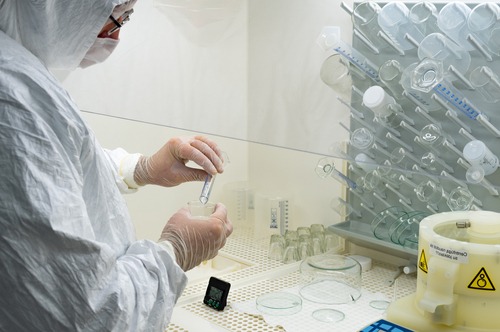
A mix of casirivimab and imdevimab, Regeneron Pharmaceuticals Inc.’s REGEN-COV, is now strongly recommended by the National Institutes of Health (NIH) for high risk COVID-19 patients that are non-hospitalized.
The drug was given a strong rate based on randomized trials, which involved more than 4,500 outpatients. That data showed REGEN-COV significantly reduced the risk of hospitalization or death by 70 percent when compared to placebo.
“With these clear new NIH guidelines, Emergency Use Authorization from the U.S. Food and Drug Administration, ample supply of REGEN-COV, and the medicine being supplied free of charge by the U.S. government, the time for equivocation has passed — we must now all do whatever it takes to make sure appropriate patients are treated as early as possible after diagnosis,” Dr. Leonard S. Schleifer, president and CEO at Regeneron, said. “If we work together, we can avoid tens of thousands of needless hospitalizations or deaths from COVID-19. We will also continue to partner with stakeholders to address other key bottlenecks such as education, ease of administration, and better systems to ensure infusion reimbursement.”
Results also prompted some NIH panel members to recommend the cocktail as the preferred approach for areas where COVID-19 variants are common. It has demonstrated continued potency in vitro against strains first identified in the United Kingdom, Brazil, South Africa, New York, and California. Notably, however, it is not yet known whether in vitro data corresponds to clinical outcomes.
Still, the Food and Drug Administration’s updated emergency use authorization (EUA) fact sheets show that REGEN-COV is the only therapy to maintain potency against these emerging variants, which have begun rapidly overtaking their forebear.
REGEN-COV is a cocktail of two monoclonal antibodies designed to block infectivity of SARS-CoV-2. They bind to a part of the virus’s spike protein and reduce its ability to evade treatment while also protecting against spike variants. Although not recommended for people hospitalized with COVID-19, it is recommended for those with mild-to-moderate cases and those hospitalized for reasons other than COVID-19, but otherwise, meets EUA criteria.
The cocktail was funded with help from the Biomedical Advanced Research and Development Authority.




